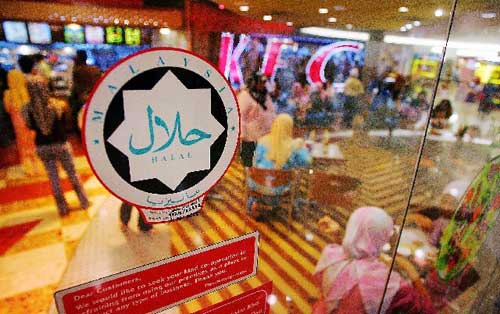Jakarta, 27 Dzulqa’dah 1436/11 September 2015 (MINA) – Regulators around the world – beyond Muslim countries in Asia and the Middle East – are increasingly exploring the impact of Sharia Law on the health care markets they oversee.
To date, the number of products certified as halal – acceptable under Sharia law – is very limited. That reduces drug treatment options for more than 2 billion Muslims, Halal Focus quoted by Mi’raj Islamic News Agency (MINA) as reporting.
Aware of the shortfall and the size of the market inherent in this large, underserved population, regulators are increasingly focused on developing regulatory pathways for the approval of halal-certified biomedical products.
The effort is visible not only in countries in the Middle East and North Africa (MENA), but also in several countries in East Asia with large Muslim populations such as Indonesia, Malaysia and Brunei. To date, the most successful efforts to marry the needs of Sharia Law and those of more traditional drug trial and regulatory approval processes may be in these countries.
Also Read: Packaging Industry Supports Halal Ecosystem
In MENA, the United Arab Emirates (UAE) is leading the way. Last year, the UAE approved a scheme to inspect both UAE-made and imported food products, meat, cosmetics and pharmaceuticals to determine if they are halal. The scheme was seen as a major step toward standardization of regulations for domestic Muslim consumers.
In East Asia, the governments of Indonesia, Malaysia and Brunei have been actively encouraging the development of a halal medicine sector. Malaysia and Brunei, in particular, want to become global leaders in halal biotechnology.
“Beyond meeting the domestic needs of their Muslim populations, this thrust is also part of a wider economic strategy by both governments to become the leaders in the area of halal medicines,” said Ang Wei Zheng, a pharmaceuticals and health care analyst at Business Monitor International.
In Malaysia, regulations to obtain halal certification for pharmaceuticals have been in place for some time. Mohd Hashim Ahmadimages Tajudin, managing director of Chemical Company of Malaysia (CCM), presented one of the first comprehensive reviews of the halal pharmaceutical industry at the 2009 World Halal Forum Europe in The Hague. That presentation was a progenitor to one of the first published standards in the world for halal products. The Malaysian Standards MS 2424:2012 include a process to set up a Halal Assurance System and a Quality Management System.
Also Read: 7th World Halal Summit Held in Istanbul
Last year, Malaysia’s Halal Industry Development signed a deal with Saudi Arabia-based AJ Pharma Holdings to jointly produce three kinds of halal-certified vaccines, including one for cerebral meningitis, aimed at pilgrims undertaking the Hajj, a once-in-a-lifetime pilgrimage to Mecca.
Indonesia, home to more than 200 million Muslims, is drafting and adopting new laws to meet Sharia Law requirements. In September 2014, Indonesia passed Law 33, which will require all products to be labeled as halal or non-halal by the time the law is implemented in 2019.
“This could put drug manufacturers, which have invested in producing halal medicines, at a distinct advantage as well as create new business opportunities for halal suppliers of pharmaceutical ingredients,” said Ang.
A Complicated Undertaking
Also Read: Halal Tourism Pays Attention to Tourist Comfort
Using this advantage to the fullest may not be easy. Drug makers who want to start manufacturing halal pharmaceutical or biomedical products – the most frequently considered products are vaccines – have to tackle some complicated procedures that include frequent and regular oversight by religious authorities or those tasked with halal certification, which change from country to country.
The push to develop stronger Sharia-compliant biotechnology industries has different drivers in different countries.
Brunei, for example, was among the first countries in the world to issue guidelines for the manufacture and handling of halal medicinal products, traditional medicines and health supplements. Guidelines were released in 2010 and cover a wide range of areas including the sourcing of ingredients. The timing is interesting, as it matches growing concern in the small but very wealthy Asian nation that the country’s oil reserves may be running low. Brunei’s economy is completely dependent on its energy production.
And yet, even as different countries move in their own way toward developing more Sharia-compliant biotech industries, a lack of unified standards is coming to the fore. And it is creating challenges for companies.
Also Read: Sheikh Watteau Supports Philippine Halal Certification Through ISO
Even Malaysia’s leading drug maker, CCM, said it is not ready to roll out halal biologic products at a regional level, much less a global one. The problem is a lack of reference documents and guidelines.
“Human cells or its derivatives are forbidden as ingredients and as such a halal equivalent for biologics will remain relatively challenging,” said Ang. “Consequently, additional developments from the technological front to establish possible alternatives as well as guidance from Muslim religious leaders is needed before the latent demand for biological products can be leveraged upon.” (T/P010/R04)
Mi’raj Islamic News Agency (MINA)
Also Read: Indonesia-Brunei Discuss Increasing Halal Meat Exports




































 Mina Indonesia
Mina Indonesia Mina Arabic
Mina Arabic